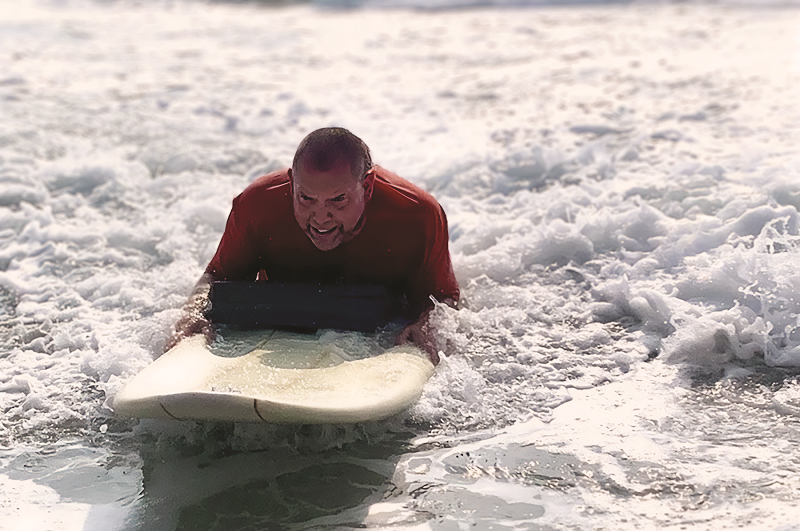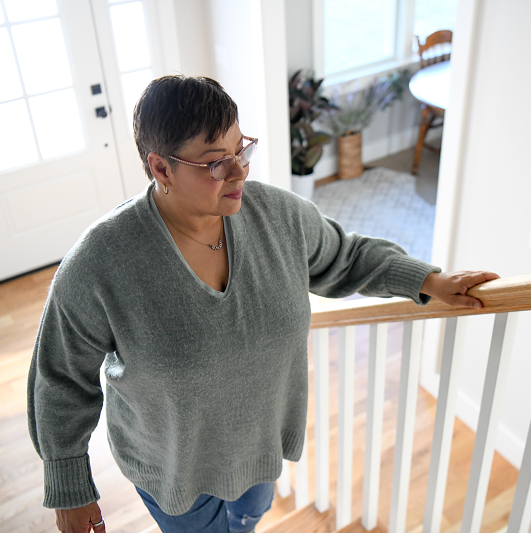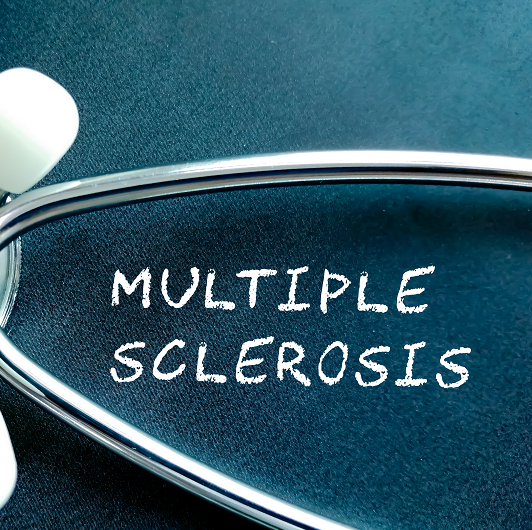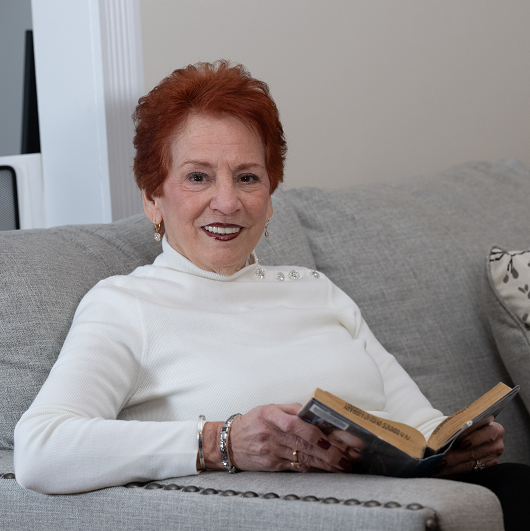Long Road with MS Made Easier at Jersey Shore University Medical Center

March 26, 2024
Michael “Mike” O’Grady of Lincroft struggled for years with fatigue, memory issues and balance problems before being diagnosed with multiple sclerosis (MS) in 2012. But it wasn’t until his chance meeting with neurologist David B. Duncan, M.D.—and subsequent switch to the Multiple Sclerosis Center at Hackensack Meridian Neuroscience Institute at Jersey Shore University Medical Center—that his form of MS was correctly pinpointed, enabling him to receive the best treatment available.
Thanks to Dr. Duncan’s diligent care, Mike, 56, now knows the continual worsening of his balance and cognitive problems is due to a particularly aggressive form of MS called primary progressive MS (PPMS). About one million Americans live with MS, but PPMS accounts for only 10–15 percent of cases, according to the National Multiple Sclerosis Society.
“Dr. Duncan was genuinely interested in my symptoms and figured out my disease had nuances that would help us better understand and treat it,” Mike says. “You want to feel like people care, and I feel that way at the MS Center.”
Pivotal Research on MS
Before MS struck, Mike was a self-proclaimed “gym rat” and always on the go as he led a sales consulting business. But the chronic central nervous system disease—which can cause problems with vision, mobility and bladder control, among other issues—took an enormous toll on his energy and lifestyle. MS made it impossible to continue working, causing his family of five to lose their house. The two-time author now uses a walker and cane.
Mike credits Dr. Duncan, director of the MS Center, with helping him pursue his biggest goal: remaining strong enough to avoid needing a wheelchair. Part of that pursuit involves participating in an ongoing international clinical trial comparing a drug called ocrelizumab (Ocrevus)—the only therapy currently available for PPMS—with the experimental drug fenebrutinib (Fentrepid), which is believed to target immune cells that play a role in MS progression.
Trial participants won’t know for another year if they’re receiving Ocrevus or Fentrepid, but either way, Mike is eager to contribute to the effort to develop new drug options for his form of MS.
“Mike is open to research and wants to do something for the greater good,” says Dr. Duncan. “He’s interested in doing something that may help others or himself.”
MS Therapy Optimizes Well-being
The MS Center’s comprehensive approach to patient care extends far beyond disbursing medication. Mike attends physical therapy twice a week and participated in “adaptive surfing” last summer at Spring Lake through Operation Beachhead. He also works with David C. Leopold, M.D., network medical director of Integrative Health and Medicine at Hackensack Meridian Health, to blend in complementary therapies such as exercise, meditation, supplements and a specialized diet to enhance his overall well-being.
“Although modern medicine can do amazing things, we also have a lot of gaps, and that’s where my practice is focused,” Dr. Leopold says. “My goal for Mike, and other patients, is to turn some lights on and empower them to find better ways to take care of themselves.”
Mike does just that. Although he must ration his energy, he routinely rides a recumbent bicycle each morning and tries to savor his family’s company. “A lot of people who get diagnosed with this disease let it take over their life,” he says. “My goal was to try not to do that. I wanted my wife and kids to see me fight.”
Next Steps & Resources
- Meet our sources: David B. Duncan, M.D. and David C. Leopold, M.D.
- To make an appointment with a neurologist near you, call 800-822-8905 or visit our website.
- Learn more about multiple sclerosis care at Hackensack Meridian Health.
The material provided through HealthU is intended to be used as general information only and should not replace the advice of your physician. Always consult your physician for individual care.





